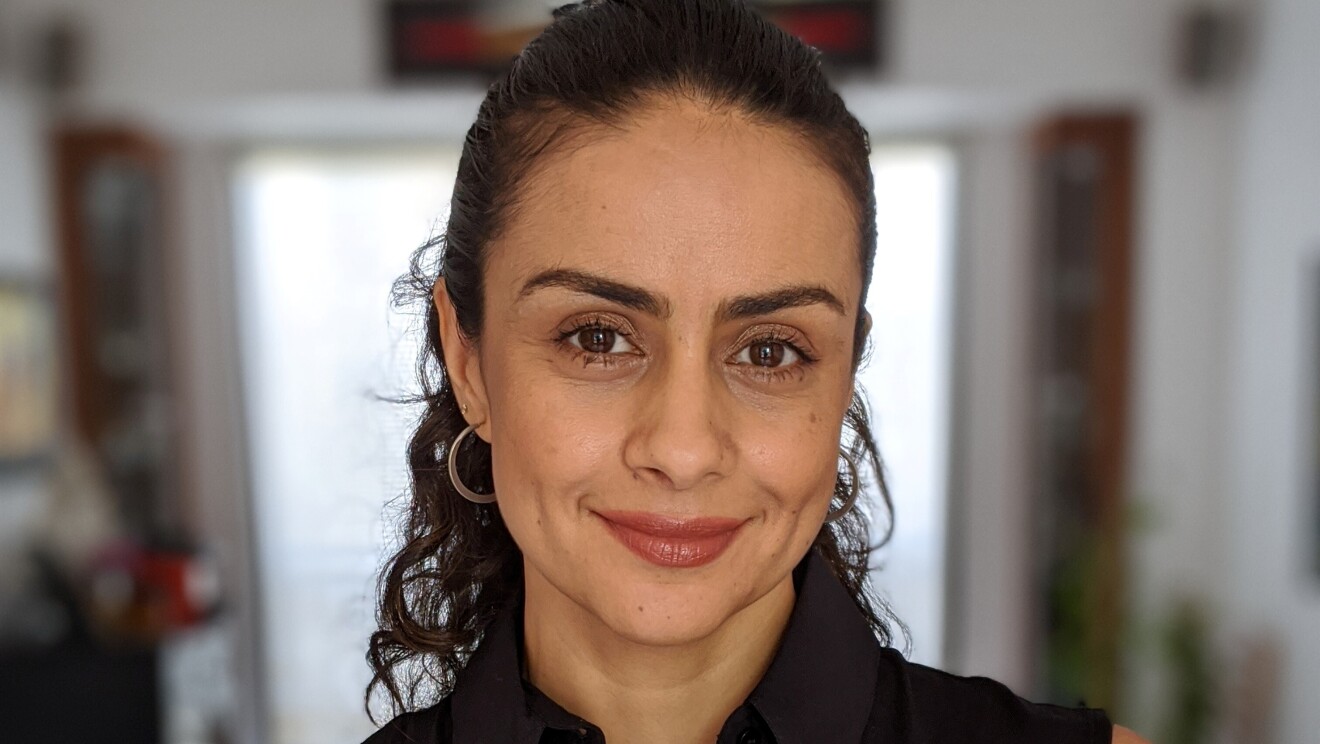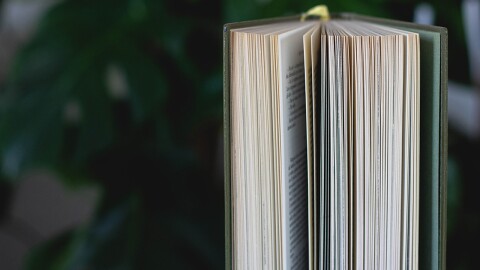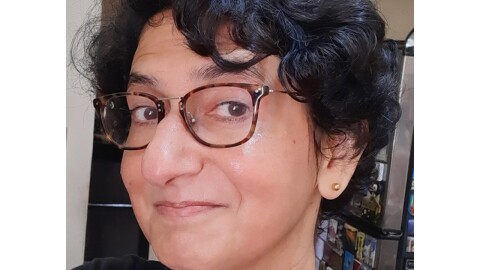There is more to the Indian Army than meets the eye and at the virtual Amazon India fishbowl that took place ahead of Independence Day, we were excited to talk about our men in uniform with Lieutenant General HS Panag, PVSM-AVSM, author of the book ‘Indian Army’. Joining him in the chat was his very lovely daughter Gul, whom many of us have watched and loved on the silver screen.
Excerpts from a virtual Fishbowl session with Lt Gen Panag that was held recently. For Gul Panag's interview, click here.
Your book The Indian Army questions the Indian Army, so why is questioning the Indian Army so important? And how does this book really bring that topic to centre stage?
The armed forces are the nation’s instrument of last resort as far as national security, both external and internal is concerned. It is the institution of the Government and it functions under the critical government. This instrument cannot fail, hence this instrument must be the best not only within India, but must be the best in the world so that it is fail safe. Now if over a period of time, because of shortage of money, because of government policies, because of loss of excellence within the system, things go wrong. So, to ensure that reforms take place, to ensure that this instrument is failsafe and it is the best in the world you have to question it.
Now, why I focused on this issue is that when you deify the Army, you put the Army on a pedestal. It is placed on a pedestal in most societies by most countries. But in our country over a period of time we have identified or just made it part and parcel of every facet of national life, particularly, given the ideology of the government in power, the rise of new ‘Nationalism’. So the distinction between the army and the government has got blurred. So you question the policies of the government, people say you’re questioning the armed forces when in fact you are actually questioning the defence policies and if you say anything about the defence forces that they haven’t performed up to expectations as they should then they say you are not patriotic, you’re anti-national. So we should overcome this.
The distinction between the army and the government has got blurred. So you question the policies of the government, people say you’re questioning the armed forces, when if fact you are actually questioning the defence policies,
As citizens, it is our right to first question the government on the defence policy and then make sure that we question the armed forces to bring about reforms so that it is a fail safe institute.
What are according to you some of the big problems that ail the armed forces right now? Are these things that can be solved and what are some of the ways in which this can be done?
Our armed forces have not modernised and kept pace with times. The last major reforms were completed by about 1990. And by 2000 we were at the peak of our performance. What has happened after that is that because of the focus of the successive governments on the economy and upliftment of poverty in the country, we have not been able to give adequate defence budget.
The other aspect is about our human resource. There has been a sort of dilution of the military character and values. When I say dilution, I’m making a relative statement. Indian Army is probably still by far the best institution the country has, the most reliable institution. But there is an old Army saying that ‘Good is not Good Enough!’. So we have to be the best. I mean there is no point in winning, coming first in India if you cannot win an Olympic medal in Tokyo. So if you keep that in mind I would say that there is a drop in relation to integrity, fitness and bearing. Bearing means how the officers and the soldiers look.
Then I also see a slight drop in moral courage to be able to stand up for what you think is right. The style of command has become autocratic or by weight of the rank and not through example, which is the best and most appropriate leadership style in the armed forces. I think the last problem that we have or the last two problems- One is that we have not empowered our soldiers and our junior leaders adequately. So their performance is below par. Consequently, officers get sucked into doing more and more and last but not the least in any case, the sky's the limit as far as training standards are concerned. I think we are short of the ideal and we need to improve our training standards. I have covered all these facets in my book under various essays, each and every one of them. So this is what in my view are the current problems. Of course it is an ongoing thing and the only constant is change.
General, in terms of reforms in the Indian Army...Why are reforms important if you could elaborate a little bit in terms of some of the things that really need to change fast and why do they need to change fast, right?
You see what kind of an armed forces you must have, begins from an action of the government which is called Strategic Review and which is not only done by the armed forces, it is done at the macro level and by various organs of the government, your state of the Economy, Ministry of Foreign Affairs, Home Ministry, everything. So when you carry out a strategic review of your environment, you decide that these are the national goals, these are the kind of threats that we are facing or likely to face in the near future. Both external and internal. So this is broadly what is the strategic review.
From the strategic review flows out the national security strategy that how we would like our national security strategy to be organised and the third thing that then has to be decided is if this is to be our strategy, what kind of armed forces are required? And the next thing that follows is, if we require this kind of armed forces then what amount of finances we have to provide for these armed forces, and then the armed forces get down to changing themselves, changing their organisations, adopting and adapting to new revolution, new technologies and you have a force which is ready. It is an ongoing process, it is not something that happens if you start, there is already an organisation which is existing. .
Now unfortunately in our country, we follow a functional system. Very rarely strategic review has been done. We actually move from crisis to crisis. A case in point is that until January this year, our Chief of Defence Staff and our senior General including the Defence Minister constantly told us the armed forces are ready. We are ready for Two-front war. In fact, somebody even mentioned we are ready for two and a half front war that is China, Pakistan and internal security. Yet when the crisis began in Eastern Ladakh just about three months ago, 15 days after that he was scurrying all over the world to buy arms, to buy ammunition and so on and so forth, that means there was some problem.
Initiating reforms in time - there is immense value in it...
The last major reforms began in the 80’s and were completed by 1990. And I want to give an example of that as to how these help. In 1986-87 there was a very interesting incident something similar to what happened in Eastern Ladakh called the Sumdorong Chu incident, where in the Northeast in a place in the Sumdorong Chu Nala the Chinese had come across near the Thagla ridge and occupied an area in our territory. Rather than you know, do a sort of knee-jerk response, General Sundarji moved the Indian Army right up to the Line of actual control. Until then we used to have our defenses 60-70km behind. So in one jump he moved them right up to the Line of Actual Control.
In fact at Sumdorong Chu he went around and surrounded the Chinese incursion. China blinked, though the incursion didn't move but they did nothing else, they followed it that we have now come and held this area in strength. Why did it happen? Because we had begun the reforms in 1980 and they were peaking by 86-87. Secondly, our GDP was almost at par with China in 1986-87.
So when we talk about reforms and there is a whole chapter in the book about the way we must go about it if our reforms are to be incremental. What modern warfare requires, wars of the 21st century is a revolution in Military Affairs.
Lagging behind in reforms since the 90s has hurt us. Can you please elaborate?
We have lagged behind in reforms and in this period PLA has gone far ahead of us. Its budget is three times ours. Its economy is 6 times than ours and that is why there is huge differential incomprehensiveness in national power. So when we talk about reforms and there is a whole chapter in the book about the way we must go about it, if our reforms are to be incremental. We have a structure available, we are just trying to modify a little here and there whereas what modern warfare requires, wars of the 21st century is a revolution in Military Affairs. You require to totally restructure, reorganize the army, infuse new technology, maybe downsize it but we are seeped in the past and almost hang on to it for our dear life.
You had the rare distinction of taking a stand against unethical practices in the organisation even when your senior officers were involved. How did you manage to achieve both and still have a successful career? How did you speak your mind in a deeply hierarchical organisation such as the army?
Well, it is not easy. In a hierarchical organisation with your annual reports and all being written, you do tend to, when you see it's a competitive world, you tend to compromise with your ideals and adjust, adjust and adapt so that no harm comes to you, that’s the normal tendency, but what I noticed and this also is because of the military culture that while there may have been dilution of the military value system, dilution in terms of our senior officers’ character etc. Dilution I said, I am not saying that it’s bad, it is dilution. There is an omnipresent kind of a quality that anybody who walks the talk, who is right and he practices what he says is respected. Believe you me, despite all the shortcomings of the system nobody ever asked me to compromise and that speaks very well of the Indian army and Indian Army's ethos. Nobody, and even at times when I disagreed, even at times when I was wrong, you know, they accepted the fact, Look I have my conviction and this man has moral courage, let him say what he wants. They gave me their quiet advice.
Despite all the shortcomings of the system nobody ever asked me to compromise and that speaks very well of the Indian army and Indian Army's ethos.
So nobody really tried to enforce anything wrong on me and plus if you’re professionally competent, everybody respects you. And you don’t have to shout from the rooftop, you can adopt the Confucius approach. I mean if you know more than your boss, you don’t have to tell him that you know more than your boss but he can sense it. He can sense it, the way you act and the way you behave. So one is your intellectual knowledge, your constant pursuit of excellence of being a role model and this great quality our army has that they recognize the real worth of an individual and even if they don't agree they don’t go and really don't harm the person. I think these personal qualities of mine and military ethos, that is what allowed me to be very vocal, to be very critical and yet also, you know have a relative rise in the armed forces.
If you could throw some light on all the current government is trying to strengthen the Indian Army, specially when we have you know foreign army kind of knocking on our door in our borders.
See let me briefly touch upon for the benefit of all the listeners and the viewers as to what’s happening in Eastern Ladakh. What is happening in Eastern Ladakh is that China has got an overall strategic intent vis-à-vis India and it wants to assert its hegemony over India. It wants India to act like a junior co-operative partner. You know in the traditional competitive sort of conflict that nations have amongst each other for dominance in a region or in the world. So that is the root cause why China triggers incidents because of unsettled parts. And in these over all strategic thought process of China comes our alliance with U.S, our membership of the court, our opposition to China-Pak economic corridor because it passes through our territory, Our claims on POK, Baltistan, Gilgit and of course our claims and our Parliament resolutions to take back Aksai Chin which was usurped by China in the 50s. So this is the overall backdrop.
How is the infrastructure at the borders? What needs to be done urgently? Where did the error to preempt the attack possibly happen?
Under this Government we’ve done very well to develop infrastructure on our borders. And our infrastructure is now reaching the areas that we’ve never reached before. Now some of these areas are those areas from where the areas of ours which have been captured by China are threatened, like Aksai Chin. It is threatened from the Dapsang & plains of the DBO Sector. It is threatened from Hot Springs in Gogra and also this Pangong Tso sector is linked to it. Galwan valley itself leads to Aksai Chin. So we have made a road upto DBO and we have developed roads into Gogra, Hotsprings and all over these areas.
The error of judgement that we made was we did not defend these areas because our main defense is on pregnable heights. This was a kind of a no man’s land existing and because of the peace prevailing on the border we didn’t really deploy them and plus when you deploy troops on fingers of your hand then you have to deploy one more troop, so troops have to be deployed like the fist at the knuckles, so that that is where all the routes concentrate. So these were our main defenses and it was a no man’s land.
Initially we also misread the situation. They surprised us to an extent that nobody expected that China would do this especially in view of the agreement that we have been signing every year. But this time the Chinese had come with an intent that no they aren’t going to go back. This is their 1960 claim, they are going to stay put here and not going to give India the advantage of creating the border infrastructure and this border infrastructure has to stop and unless India agrees to stop it they will not go back. Anyway, there is a kind of what you call a stalemate and a state quo is maintained as the situation is very tense.
What are your thoughts on tackling them head on? And what is the worst case scenario, if we can put it that way?
I think war should be the last resort. To that extent our Government has followed a pragmatic policy and this pragmatic policy is let’s not get into a confrontation straightaway. Let’s not up the ante or escalate the situation. Let us block the Chinese. After all there are very small hindrances that have taken place and let’s buy our time to negotiate diplomatically. And I’m sure that at the moment as we are dealing through military engagement soon it will be at the higher levels in politics and we never know if a solution may come. But if a solution doesn’t come out, then we have to be prepared for the worst.
We have to be prepared for escalation. We also have to be prepared to exercise the military option which may be an action initiated by us or as a reaction but this can happen at the time and place of our own choosing. There is no hurry.
We have to be prepared for escalation. We also have to be prepared to exercise the military option which may be an action initiated by us or as a reaction but this can happen at the time and place of our own choosing. There is no hurry. Government, well within their right don’t talk about these things publicly to that extent. I don’t really quarrel with the Government though ideal would have been that the Government should have shared with the public that this is what has happened and because of these circumstances and because of COVID, because of our economy currently we are focussing on diplomacy. We haven’t closed our options. I think the nation would understand. They would still support. Now as far as strengthening of the armed forces is concerned, Indian Army is strong.
Let me assure you all that should a push come to a shove, China is going to get a bloody nose. There is no way, now that we are pumped in our troops, we are secured, we have made our defenses proper. There is no way that China can escalate the situation and get away with it.
Sky's the limit as far as national security is concerned but the limitations of finances are always there. So at the moment what we are doing is that we are trying to get whatever is the shortfall. However the long term plans are in the pipeline. We’ve already received 5 Rafaels, more will come and the other equipment will keep coming. Nothing is going to happen in a hurry. It is going to take time. The Government has done extremely well as far as this aspect is concerned. So I would say this that the army is well prepared. We have stopped any further advances of the PLA and should anything happen PLA will get a bloody nose which they will remember as it happened in 1967 at Nathula and it also happened during Sumdorong Chu. And we’ll come out as winners.
What are some of the suggestions you want to give us for aspirants who want to get into the armed forces. What are the various ways directly or indirectly we can be part of this institution right?
The simple thing is the armed forces want from you good leadership qualities. They test your academic intellect through an entrance examination, which is no big deal and most of the, anybody who is high-average students of +2 or graduate can easily pass the entrance examination. However at the selection board comes the real test and there they judge you for your leadership qualities.
If you are aspiring for the army, you must think like that when you are preparing so that you act accordingly.
Some of these qualities that I must list for you are integrity, bearing and fitness, because in the selection board you’re tested for that. After this comes of course, very sharp intellect. The selection board also sees are you a team man? So they watch that very carefully then your will. Will is the ability or the inherent human quality that allows us to initiate action. Are you able to initiate action on your own or do you keep waiting for orders? And last but not the least, is that Do you walk the talk?
If you are aspiring for the army, you must think like that when you are preparing so that you act accordingly. A simple thing is like obeying traffic rules. If you feel that you are going to be a role model, please obey traffic rules.
Of course as I mentioned that the basic thing they are looking for is leaders and then they are going to invest a lot of money in you in the National Defence Academy and subsequently to make these qualities reach the idealistic standards and what does not reach the idealistic standards is enforced through rules and regulations and law. But, that is the last resort.












